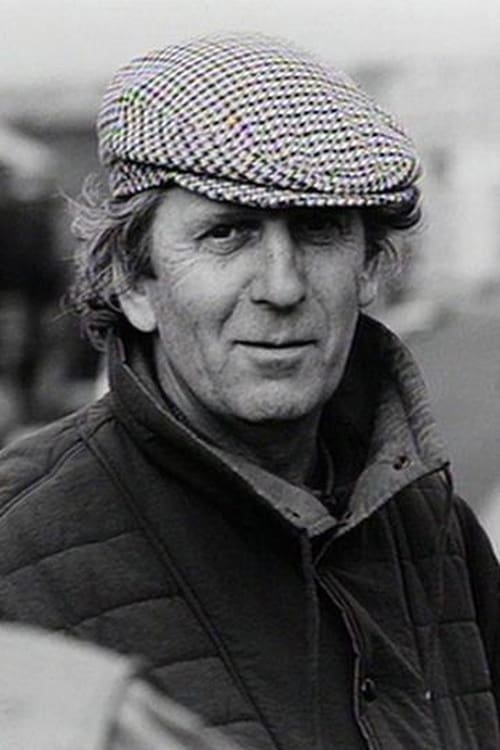
Alan Clarke
Nascimento : 1935-10-28, Wallasey, Merseyside, England, UK
Morte : 1990-07-24
História
From Wikipedia, the free encyclopedia.
Alan Clarke (28 October 1935 – 24 July 1990) was a television and film director, producer and writer, born in Wallasey, Merseyside, England.
Most of Clarke's output was for television rather than cinema, including work for the famous play strands The Wednesday Play and Play for Today. His subject matter tended towards social realism, especially with respect to deprived or oppressed communities.
As Dave Rolinson's book (see 'Further reading', below) on Clarke details, between 1962 and 1966 Clarke directed several plays at The Questors Theatre in Ealing, London. Between 1967 and 1969 he directed various ITV productions including plays by Alun Owen (Shelter, George’s Room, Stella, Thief, Gareth), Edna O’Brien (Which Of These Two Ladies Is He Married To? and Nothing’s Ever Over) and Roy Minton (The Gentleman Caller, Goodnight Albert, Stand By Your Screen). He also worked on the series The Informer, The Gold Robbers and A Man Of Our Times (but not, as Sight and Sound once claimed, Big Breadwinner Hog). Clarke continued to work for ITV through the 1970s but now made much of his work for the BBC. This included pieces for The Wednesday Play (Sovereign's Company 1970), Play for Today and Play of the Month. Distinctive work for these strands included further plays by Minton including Funny Farm (1975) and Scum (further details below), but also Sovereign’s Company (1970) by Don Shaw, The Hallelujah Handshake (1970) by Colin Welland and Penda’s Fen (1974) by David Rudkin. He also made To Encourage the Others (1972), a powerful drama documentary about the Derek Bentley case, and several documentaries, including Vodka Cola (1981) on multinational corporations.
A number of his works achieved notoriety and widespread criticism from the conservative end of the political spectrum, including Scum (1977), dealing with the subject of borstals (youth prisons), which was banned by the BBC, and subsequently remade by Clarke as a feature film in 1979 (the original television version was eventually screened after his death). His 1982 television play Made in Britain, starring Tim Roth (in his television debut) as a racist skinhead and his negative relationship with authorities and racial minorities, was based on a screenplay by David Leland. He directed the feature film Rita, Sue and Bob Too released in 1987.
Clarke's work in the 1980s is fiercely stark and political, including the David Leland plays Beloved Enemy (1981) on multinational corporations and Psy-Warriors (1981) on military interrogation. But he also directed David Bowie in Baal (1982) for the BBC, part of Clarke’s interest in Bertolt Brecht. His film work became more sparse, culminating in Contact (1984) on the British military presence in Northern Ireland, Billy the Kid and the Green Baize Vampire (1985), Road (1987) and his short film (40 mins.) Elephant (1989) which dealt with 'the troubles' in Northern Ireland and featured a series of shootings with no narrative and hardly any dialogue; all were based on accounts of actual sectarian killings that had taken place in Belfast. The film took its title from Bernard MacLaverty's description of the troubles as "the elephant in our living room" - a reference to the collective denial of the underlying social problems of Northern Ireland. His final production, The Firm (1989), covered football hooliganism through the lead character played by Gary Oldman, but also the politics of Thatcher’s Britain.
Clarke inspired a generation of actors, writers and directors, including Paul Greengrass, Stephen Frears, Tim Roth, Ray Winstone, Gary Oldman, Danny Brocklehurst and Iain MacDonald. Filmmaker Harmony Korine has cited Clarke as a major influence on his work.
Clarke's son is Gabriel Clarke, an award-winning sports journalist with ITV.
Description above from the Wikipedia article Alan Clarke, licensed under CC-BY-SA, full list of contributors on Wikipedia.

Documentary - Alan Clarke's films exposed a real, raw world as no other films have. Works such as "Scum," "Made in Britain," "The Firm," "Rita, Sue and Bob Too" and "Elephant" inspired a generation of British actors, writers and directors that changed cinema forever. This documentary features rare behind-the-scenes footage and interviews with friends and colleagues of Clarke, including Tim Roth, Danny Boyle, Stephen Frears, Ray Winstone and Phil Daniels. -
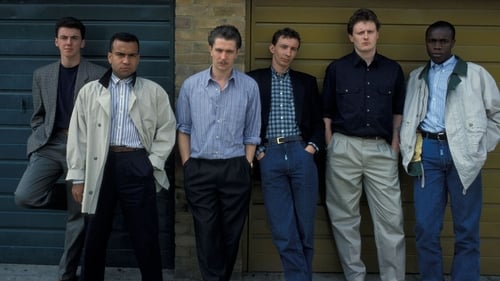
Director
A seemingly respectable estate agent leads a double life as the head of a vicious, well-organised gang of football hooligans.

Director
A depiction of a series of violent killings in Northern Ireland.

Director
A view of the inhabitants of a derelict road in Manchester, unsatisfied with their lives and routines. A young man locks himself away from the world. An older woman flirts with a soldier on leave. Two men invite two girls into an empty house.
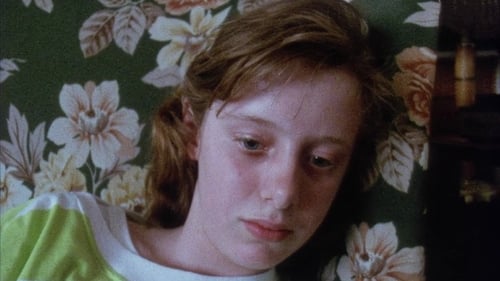
Writer
Christine is a pasty-faced teen in a windbreaker and ill-fitting striped shirt who walks endlessly from one friend's house to another, delivering heroin while their parents are absent.

Director
Christine is a pasty-faced teen in a windbreaker and ill-fitting striped shirt who walks endlessly from one friend's house to another, delivering heroin while their parents are absent.
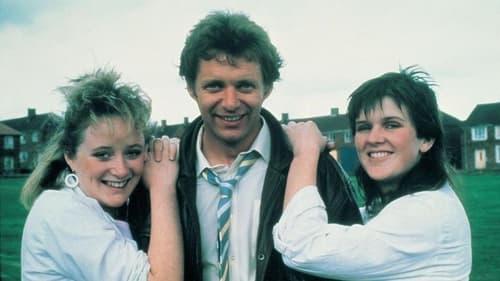
Director
Rita and Sue are two teenagers living on a run-down council estate in Bradford, who both share a job babysitting for Bob and Michelle's children. Whilst giving them a lift home one night, Bob decides to take Rita and Sue up to a deserted, country-side landscape. Clearly knowing what he has in mind, Rita and Sue are only too happy to oblige and both have a sexual encounter with him that becomes a regular occurrence.

Director
Cocky cockney snooker player Billy Kid accepts the challenge of a grudge match from Maxwell Randall (the Green Baize Vampire), six times world champion; the loser will never play professional snooker again.
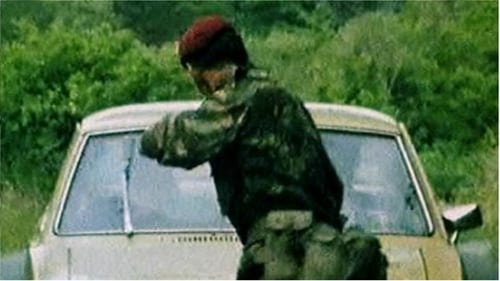
Director
A platoon of British paratroopers on border patrol in South Armagh face a series of tense encounters.
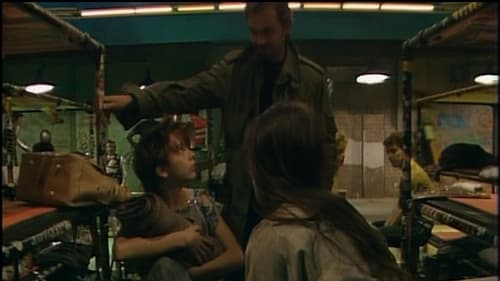
Director
Video-shot on studio sets, Stars of the Roller State Disco borders on science fiction of the dystopian variety. Unemployed youngsters spend their days at the roller disco of the title, circling round and round, before being called to take up low-paid jobs as they become available. They leave the building in a wash of light, though we do not go through that door with them. For others it's a subsistence existence of vending machine food, video games, with sex and drug freely available as distractions. (Television @ The Digital Fix)

Director
Documentary about the work of South African intelligence agencies in Britain, with an interview with Information Secretary in the South African government, Eschel Rhoodie, and former agents.

Director
An analysis of short consultations, concentrating on five U.K. surgeries, intended for small groups of GPs, vocational trainees or continuing medical education groups.
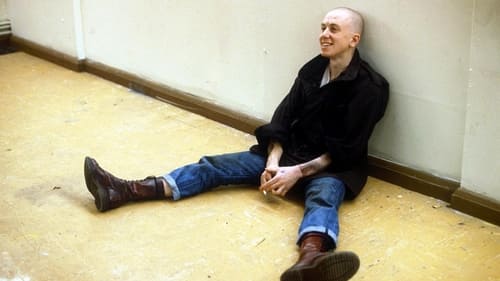
Director
Trevor é um jovem skinhead de 16 anos, violento e sem nenhum respeito a qualquer autoridade. Investe o seu tempo roubando carros e em atos de vandalismo, e esperando sentado em centros de detenção enquanto aguarda o seu futuro destino. Enquanto todos tentam ajudar Trevor a se adaptar às normas da sociedade, ele responde com desprezo e discursos cheios de ódio.
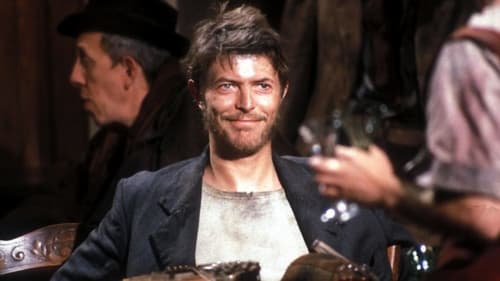
Director
Baal is an amoral poetic genius who, after a life of debauchery, betrayal and violence, is about to cut his ties to the world and meet his doom. A high society party is where the end begins.
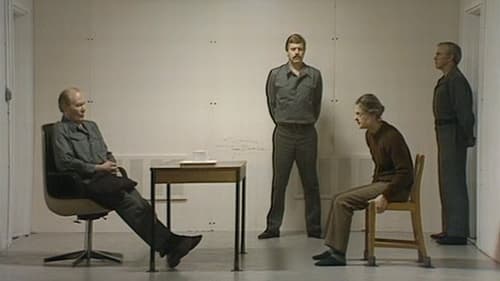
Director
Soldiers are captured and interrogated by terrorists: but is it real or only a sadistic form of psychological training exercise?
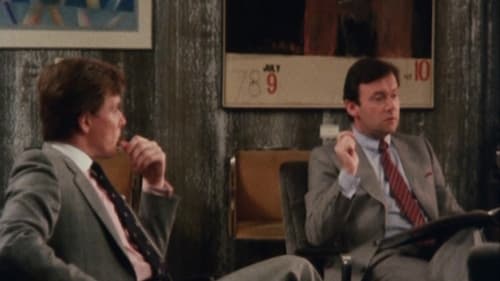
Director
A cool hard study of 'the art of the deal' on a global scale. Sir Peter, the chillingly affable chief exec of big British multi-national UKM, learns that the Soviet Union's chief scientists are in London with government credit to spend. He's keen to flog them a tyre-production plant. based in the Ukraine, which will unshackle UKM from bothersome unions at home. But at the negotiating table, it fast becomes apparent that the Soviets are more interested in the laser technology UKM employs to vulcanise their tyres; and Peter starts to foresee a new future in military aerospace for his ever fiexible firm.

Producer
Documentary on the relationship of the Eastern and Western countries of the world characterised by Charles Levinson as the Vodka Bloc and the Cola Front, which have been stimulated into further consolidation by the Afghanistan invasion.

Director
Documentary on the relationship of the Eastern and Western countries of the world characterised by Charles Levinson as the Vodka Bloc and the Cola Front, which have been stimulated into further consolidation by the Afghanistan invasion.
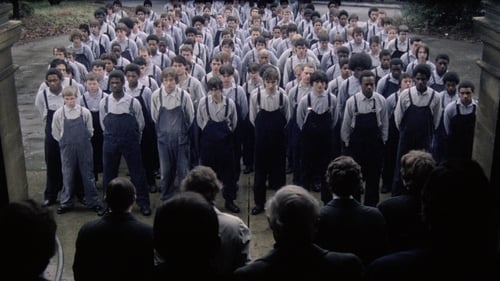
Director
Powerful, uncompromising drama about two boys' struggle for survival in the nightmare world of Britain's notorious Borstal Reformatory. [This is the feature film version Alan Clarke made after the BBC banned the original before its scheduled TV broadcast (see Scum (1977)].

Director
Play for Today about Russian dissidents.
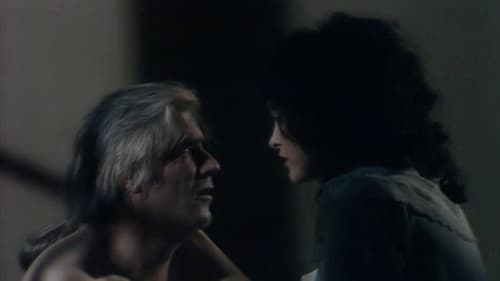
Writer
Danton 's Death is arguably the most dramatic and penetrating study of revolution ever written. Georg Biichner concentrates on that moment in 1794 when the Reign of Terror, already well established, spills over into a total blood-bath. The play, adapted by director Alan Clarke and Stuart Griffiths, both highly imaginative and closely documentary, shows how the great hero of the early phase of the Revolution, Danton, sickened by the excesses of the guillotine, which he helped to create, wants to call a halt. But Robespierre and Saint-Just, the leaders of the extremists, with a ferocious puritanical zeal, spur on ' the wild horses of the Revolution.'

Director
Danton 's Death is arguably the most dramatic and penetrating study of revolution ever written. Georg Biichner concentrates on that moment in 1794 when the Reign of Terror, already well established, spills over into a total blood-bath. The play, adapted by director Alan Clarke and Stuart Griffiths, both highly imaginative and closely documentary, shows how the great hero of the early phase of the Revolution, Danton, sickened by the excesses of the guillotine, which he helped to create, wants to call a halt. But Robespierre and Saint-Just, the leaders of the extremists, with a ferocious puritanical zeal, spur on ' the wild horses of the Revolution.'
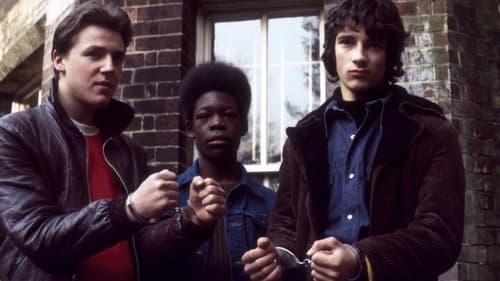
Director
A hard and shocking story of life in a British borstal for young offenders. [This is the original version scheduled for broadcast on 'Play for Today' on 8-Nov-1977 but withdrawn by the BBC because it was deemed too controversial. Director Alan Clarke edited the film and released it in cinemas in 1979 (See 'Scum (1979)'). The BBC would eventually broadcast the original on 27-Jul-1991.]

Producer
Alan Clarke's documentary about Soviet writer and dissident Vladimir Bukovsky, who had left the Soviet Union in 1976 after years spent in their prisons and psychiatric wards. The film was completed in 1977 but never broadcast, subject only to private screenings. The documentary appears publicly for the first time as a special feature of the BFI's 'Dissent and Disruption: Alan Clarke at the BBC (1969-1989)' box set, alongside 50 minutes of outtakes.

Director
Alan Clarke's documentary about Soviet writer and dissident Vladimir Bukovsky, who had left the Soviet Union in 1976 after years spent in their prisons and psychiatric wards. The film was completed in 1977 but never broadcast, subject only to private screenings. The documentary appears publicly for the first time as a special feature of the BFI's 'Dissent and Disruption: Alan Clarke at the BBC (1969-1989)' box set, alongside 50 minutes of outtakes.

Director
Jimmy is a talented young boxer. Every punch he throws is eagerly watched by his trainer, and resented by his girlfriend. His parents, however, aren't particularly interested – until a large car and what appears to be a handsome contract arrive at the door.

Writer
Teenager Diane Weaver lives in a small council flat with her brooding father, the groundskeeper of a local church. What no one realizes is how close Diane and her father are.

Director
Teenager Diane Weaver lives in a small council flat with her brooding father, the groundskeeper of a local church. What no one realizes is how close Diane and her father are.

Director
Funny Farm depicts a night shift by nurse Alan Welbeck (Tim Preece) on a psychiatric ward.

Director
Harry and Emily are two of the livelier residents of a London old people's home. When they decide to get married, things prove less simple.
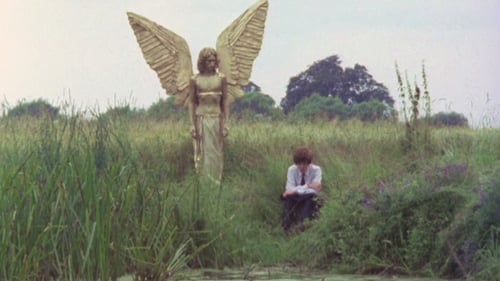
Director
Através de uma série de encontros reais e imaginários com anjos, demônios e o passado pagão da Inglaterra, o filho de um pastor começa a questionar sua religião e política, e chega a um acordo com sua sexualidade.

Director
A BBC television adaptation of Aleksandr Solzhenitsyn's novel. The prisoner Nemov is an honest man serving a term of 10 years for violations of Article 58. Nemov falls in love with Lyuba, who is having sex with the camp doctor Mereshchun, in exchange for better food and living conditions.

Director
The conflict between a judge who sees himself as a creative and skilful protector of democracy, and his daughter, who sees him in a totally different light.

Director
A professional footballer suffers an injury which could jeopardise his career.

Director
Alan Clarke's standalone film first appeared as an episode of the BBC series "The Edwardians" and concerns notorious bon vivant, swindler, MP, public speaker, founder of the Financial Times and publisher of John Bull magazine, Horatio Bottomley.

Director
Johnson begins his life sentence for the murder of a policeman. It is not long before he will experience the harsh realities of the brutality and day to day drudgery of prison life.

Director
The true story of Derek Bentley, whose conviction and execution for a murder committed by someone else provoked a public revulsion.

Director
Set in Yorkshire, diabetic Horace is mentally disabled and works in the back of a joke shop.

Director
The story concerns Susie, a transgender bartender, dealing with four patrons who stumble into her place of work. Susie grows wary of the two men and the two women, the latter of which are underage, and tension begins to mount and escalate between all of the characters.

Director
Comedy play about a seaside photographer, Henry Hunter, who goes to Margate every year to work, staying with his friends Frank and Hylda. However, he is getting older, and his trade is dying out as people have their own instamatic cameras.

Director
A lonely young man longing to be accepted lies his way into a local church. The priest and his congregation soon begin to unravel his tales as his actions become versatile.

Director
When it's time to wet the baby's head, it's surprising the secrets that emerge...

Director
Sovereign's Company is the story of a boy from an army family with a long tradition of honour and distinction, who goes to a military academy as an officer cadet and finds himself temperamentally unsuited to the life.

Director
The story of a comedian with a talent close to genius but with an insecurity problem.

Director
A young train spotter heads to Staffordshire for a historic journey through a soon to be condemned tunnel. During his trip, he encounters a series of curious characters.

Director
A film by Alan Clarke for the 'Sunday Night Theatre' anthology series.

Director
A film by Alan Clarke for the 'The Company of Five' anthology series.

Director
A lady catches the attention of a compulsive gambler.

Director
Mavie cannot declare her love, because the object of her affections is a very busy man.

Director
Stella escapes an unhappy relationship to live in a bedsit. She meets another man which forces her to make decisions about her life.

Director
Albert lives with his Grandma, who he thinks is cramping his style. However an incident reveals to him that he is as much dependent on her as she is of him.

Director
A film by Alan Clarke for the 'A Man of Our Times' anthology series.

Director
A man is interviewed by a young widow as a potential lodger, and learns some disturbing facts about the woman's relationship with her dead husband.

Director
Visiting unemployed brothers Clack and Ged, social security inspector Mr. Hicks finds few reasons for sympathy. However, the tables are turned on the investigator: Clack defends Ged as 'a paying member of the welfare state' rather than a case for charity, and events take a sinister turn.

Director
A woman seeks shelter from the rain in a park conservatory but is forced into conversation with a man who wants to know what else she is sheltering from.

















